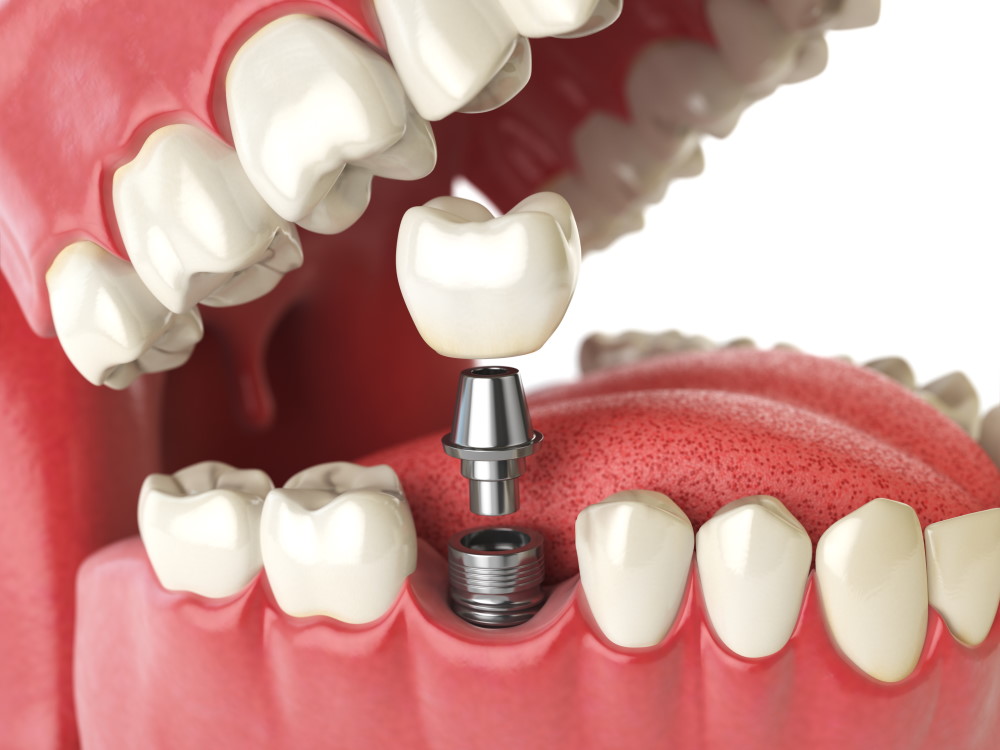DENTAL IMPLANTS
Dental Implants are designed to provide a foundation for one or more missing teeth and are used to replace missing roots and support replacement teeth that look, feel and function like natural teeth.
They can also be used to support a removable full or partial denture, providing stability and long term support. The person, who has lost teeth, regains the ability to eat virtually anything and can smile with confidence knowing that the teeth appear natural.
Placement of dental implant involves surgery to place a metal post into your jaw bone. Over time (usually 6 months) the post will bond with the bone around it. This will act as an anchor to hold one or more missing teeth in place.
Dental implants are excellent treatment options for anyone who is missing teeth. They can replace one tooth or many teeth (more implants are needed for areas that are missing multiple teeth). Long term studies have been performed on the longevity of dental implants and in healthy patients who are non-smoker and not diabetic, 10 year success have been reported in ranges of 95% and above in some studies.
Does this mean that diabetics and smokers are not candidates for dental implants? No, it does not. However these risk factors decrease the success rate of dental implants. Other factors that affect the success of dental implants include bone density, area of the jaw where the implant is being placed, bone modifying medications and history of radiation to the jaws. Since each individual cases is different from others, it is important that you seek a consultation to discuss your unique cases and see if you are a candidate for having dental implants.

